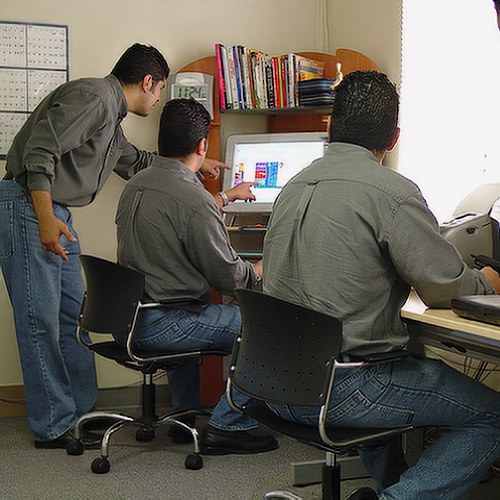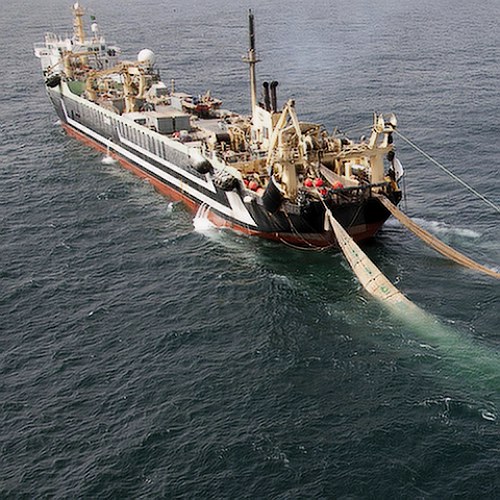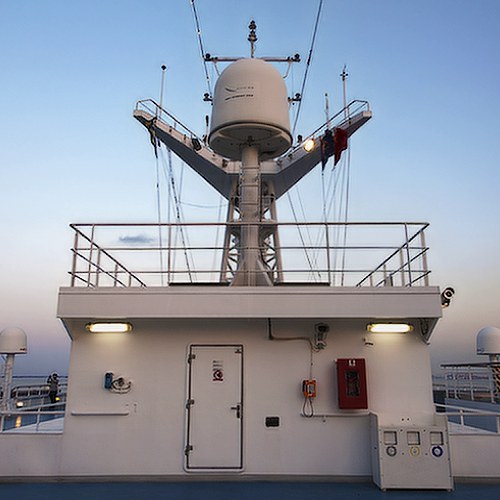Romantis is a telecommunication service provider that offers end-to-end network solutions, based on innovative technologies. We offer a range of services that utilise terrestrial and wireless technology to provide connectivity for various applications, including enterprise, broadcasting, maritime and cellular backhaul.
Our telecommunications services enable voice, data, and video communication over large geographic areas. These services are commonly used in remote or rural areas where traditional infrastructure is not available or not cost-effective.
Romantis partners with leading equipment manufacturers and uses the most advanced software to provide the highest quality of service and the best cost of ownership. The company has been involved in the development of the telecom industry for decades and accumulated a unique experience that allows us to solve the most ambitious tasks.
Romantis Enterprise
Romantis Enterprise network is a sophisticated communication system that enables businesses and organisations to connect their remote locations with a reliable and secure communication link. It is typically used by large companies or government agencies that need to communicate with multiple branches or offices that are in remote or geographically dispersed areas. Romantis Enterprise networks provide several benefits over traditional networks. They offer a wider coverage area and are not affected by geographical barriers such as mountains or oceans. They are also more secure and reliable as they are less susceptible to disruptions caused by natural disasters or human interference. Romantis Enterprise network provides organisations with a reliable, secure, and cost-effective way to communicate with remote locations, making it a valuable tool for businesses and government agencies. A few examples of Romantis Enterprise satellite networks:
- Oil and Gas Industry: has a significant need for reliable and secure communication networks to support their operations and monitoring of assets in remote locations.
- Mining Industry: also relies on wireless networks to support their operations in remote locations. This includes communication between mining sites and headquarters, as well as remote monitoring of equipment and environmental conditions.
- Aviation Industry: The aviation industry uses wireless networks to support communications and navigation systems on board aircraft, as well as for air traffic control and weather monitoring.


Romantis Enterprise network provides organisations with a reliable, secure, and cost-effective way to communicate with remote locations, making it a valuable tool for businesses and government agencies:
- Wide Coverage: Romantis Enterprise networks have a wider coverage area than traditional networks, allowing organisations to connect with remote locations that are difficult or impossible to reach via other means.
- Reliable: Romantis Enterprise networks are less susceptible to disruptions caused by natural disasters, human interference, or equipment failure, making them more reliable than terrestrial networks.
- Security: Romantis Enterprise networks are more secure than networks as they are more difficult to hack or intercept. This is especially important for organisations that deal with sensitive information.
- Scalability: Romantis Enterprise networks are highly scalable and can easily accommodate the growing communication needs of an organisation.
- Cost-Effective: While the initial cost of setting up an enterprise network may be higher than a traditional network, Romantis Enterprise networks are more cost-effective in the long run as they require less maintenance and have lower operational costs.
- Faster Deployment: Romantis Enterprise networks can be deployed quickly and easily, without the need for extensive infrastructure or network setup.
- High-Quality Communication: Romantis Enterprise networks offer high-quality voice, video, and data transmission, making them ideal for real-time communication, such as video conferencing or telemedicine.
Romantis Maritime
Romantis Maritime services are designed to enable communication and data transmission between ships and land-based communication networks. Such services are essential for the shipping industry, as they provide a reliable and secure means of communication for vessel operators and crew. They allow for real-time communication and information exchange between vessels and onshore personnel, which can be critical in emergency situations, such as distress calls or medical emergencies.
Romantis Maritime services are particularly important for shipping companies that operate in remote areas or international waters, where traditional communication infrastructure may not be available, reliable, or affordable. These services also support various maritime applications, such as vessel tracking, fisheries management, and environmental monitoring. The most intense users of maritime communications include:
- Commercial shipping companies: Companies that operate cargo ships, tankers, and other vessels for transporting goods across international waters rely heavily on maritime communications to maintain contact with their vessels and monitor their progress.
- Fishing vessels: Fishermen also use maritime communications to track their fishing vessels and communicate with each other while at sea. The availability of broadband internet at sea today is an important criterion for crew recruitment.
- Cruise lines: Cruise ships use maritime communications to provide passengers with internet access, voice and video calls, and other services.
- Offshore oil and gas companies: Oil and gas companies that operate offshore rigs use maritime communications to stay in touch with their teams on the ground and monitor operations in real-time.
- Recreational boaters: Recreational boaters also use maritime communications to stay connected while at sea, particularly when traveling in remote areas where traditional cellular coverage is not available.


The advantage of Romantis Maritime services is to ensure reliable communication, access to critical information, cost savings, compliance with regulations, and a competitive advantage in the shipping industry:
- Reliable communication: Romantis Maritime services provide a reliable means of communication between ships and onshore personnel, ensuring that important information is transmitted in real-time. This can be particularly important in emergency situations.
- Access to critical information: Romantis Maritime services provide access to critical information, such as weather reports, navigation charts, and vessel tracking data, which is essential for safe and efficient navigation.
- Cost savings: Romantis Maritime services can help shipping companies save money by providing access to more affordable communication options, such as Voice over Internet Protocol (VoIP) and email, as well as reducing the cost of maintenance and repair of communication equipment.
- Compliance with regulations: Many maritime regulations require ships to have a means of reliable communication and data transmission. Romantis Maritime services can help companies comply with these regulations.
- Competitive advantage: Romantis Maritime services can provide shipping companies with a competitive advantage by enabling them to offer better communication and data transmission options to their customers, as well as improving operational efficiency.
Romantis Media
Romantis Media delivery services demonstrate the versatility of wireless communications in supporting the diverse needs of broadcasting companies, enabling them to deliver content more effectively and reliably to a broader audience. Broadcasting companies can use our services in several ways to enhance their services and reach:
- Broadcasting:Romantis Media communications enable broadcasters to transmit signals directly to consumers' homes, which is particularly useful for reaching audiences in remote or rural areas where terrestrial broadcasting infrastructure may be limited or non-existent
- Live Event Coverage:Romantis Media provide the capability to broadcast live events globally in real-time, allowing broadcasters to cover news, sports, and other live events from virtually any location
- Content Distribution:Broadcasting companies can use Romantis Media to distribute content to various geographical locations, making it easier to syndicate programming across different regions and countries
- Network Resilience and Backup: Romantis Media offer an alternative path for signal transmission, ensuring that broadcasting services can continue even if terrestrial networks fail or are disrupted
- High Definition Broadcasting: Romantis Media can accommodate the high data rates required for HD and UHD broadcasting, ensuring high-quality content delivery to viewers


Romantis Media delivery services provide broadcasting companies with the necessary tools to deliver content more efficiently, flexibly, and reliably, which is essential in today's fast-paced media environment. Romantis Media services are critically important for broadcasting companies for several reasons:
- Flexibility in Content Acquisition: Romantis Media technologies enable broadcasters to capture and transmit content from remote or unexpected locations, which is essential for live reporting and covering breaking news
- Enhanced Mobility:Camera teams benefit from the mobility that Romantis Media solution provides, allowing them to shoot from unique angles and locations without the constraints of cables
- Rapid Deployment:Romantis Media solutions can be deployed quickly, which is crucial for timely broadcasting, especially during live events or when covering news on the move
- Cost-Effectiveness:Romantis Media networks can reduce the costs associated with physical infrastructure like cables and allow for more efficient use of resources
- High-Quality Transmission:Advanced Romantis Media technologies promise to enhance the reliability of data transmissions and support more data-intensive applications, which is beneficial for high-definition broadcasting
- Increased Competition:With the ability to broadcast from anywhere at any time, Romantis Media services increase the competitive edge of broadcasters by enabling them to bring content to viewers faster
